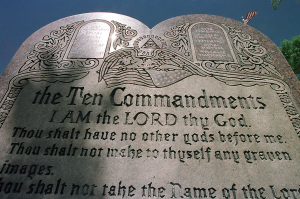Aspiring Pastor Allowed to Stay in US After Threat of Deportation
A Salt Lake City court administratively closed the U.S. Immigration and Customs Enforcement's case against Deyvid Morales, a 20-year-old aspiring pastor who faced deportation charges in late 2011, on Feb. 23. 2012.
As previously reported by The Christian Post, Morales was arrested while traveling from his hometown of Salt Lake City, Utah, to Lafayette, La., to attend Bible school in January 2011.
After his arrest, Morales spent 17 days in jail. After being released on a bond, Morales laid low as he went through the trial process, according to The Salt Lake Tribune.
The aspiring pastor then used his public speaking skills to lend a voice to the undocumented residents in the U.S. He became a staunch proponent of the DREAM (Development, Relief and Education for Alien Minors) Act, which has been repeatedly introduced on Capitol HIll but has yet to pass.
The Act provides children brought into the U.S. illegally by their parents the opportunity to remain in the U.S. if they abide by a list of restrictions, including being of "good, moral character" and, if male, registering with the Selective Service.
While awaiting his trial in 2011, Morales spoke to The Christian Post regarding his uncertain situation, and continued faith in God.
"If I stand up for God, He will stand up for me," Morales told CP in December 2011.
Morales immigrated to the United States from Mexico when he was 9 years old. Both he and his parents are undocumented in the United States.
If Morales had lost his court case, he would have been deported to his birthplace of Mexico.
After learning his case was administratively closed on Thursday, Feb. 23, Morales mimicked Denver Broncos quarterback Tim Tebow, also an ardent Christian, by "Tebowing" in front of the Salt Lake City courthouse, The Salt Lake Tribune reported.
Before Morales' trial in August 2011, the Morton Memo came into effect. This memo, named after John Morton, director of the United States' Immigration and Customs Enforcement agency, advises prosecutors to exercise discretion in deportation cases.
The memo offers a list of factors which should aid prosecutors in their discretion, including whether or not the defendant attended an American high school or college, whether they are a criminal and if they pose any significant threat to public safety.
Although Morales has gained a substantial following during his trial, many do not agree with the court's decision to allow him to stay, arguing that it is a blatant violation of the law, and that judges have too much liberty to pick and choose who may stay in the U.S. and who must be deported.
"The problem is that he does not want to follow the proper channels to become a legal immigrant and eventually a U.S. citizen for whatever reasons he may have, and that is plain wrong," commented one reader of The Salt Lake Tribune's article on Morales.



























